Team Presentation Directions (Carmichael)
ENG 105-6 The Credible Writer Section 26
Team Presentations
Goals
The goals of these team presentations are threefold:
• To understand how fraudulent or compromised writing gains credibility in the public sphere
• To explore the damage that can be done when fraudulent or compromised information gains credibility with the general public
• To give you experience conducting research and presentations in a team setting (per The Craft of Research)
The primary goal of this segment of the course is for your team to familiarize itself with the “high points” of each case (or your portion of the case), so that you can lead a class discussion that illuminates the complicated problem of assessing the credibility of writers who have gained prominence and influence in the public sphere. You should use the documents assembled in the Blackboard folders for the case study as the inspiration for targeted questions that you will pursue through additional research.
Directions
For this assignment you will be asked to work in teams to collect key information about the origin, discovery and repercussions relating to each case study. It is recommended that you divide the research tasks up among team members so as to minimize the overall labor. Then you should meet as a team to determine the most interesting points to present to and discuss with the class. Finally, you should allocate segments of the presentation among team members according to their areas of knowledge and interests.
The presentation should be organized (roughly) around answers to the following questions
What?
Provide a brief overview of the facts of the case, highlighting points of interest (e.g. techniques that were especially important in helping the perpetrators establish certain fraudulent claims, or that may point to interesting theories as to the perpetrators’ motivations or constraints).
Why?
Discuss the motivations of the main perpetrators (you may need to speculate for this, but be sure your speculations are based on some evidence). Was he/she confused? Under pressure? Convinced that nobody would know or that he/she was conducting less than legitimate work? Indifferent to discovery or convinced that discovery wouldn’t matter or would never occur?
How?
How did the publication get past the “gatekeepers”—people responsible for seeing that such incidents do not occur (e.g. editors, reviewers, the SEC)? How was it caught? Was the fraud or questionable conduct difficult to discover (e.g. did it require special expertise), or was discovery perhaps inevitable?
What were the repercussions?
Did the main perpetrators make a public apology? Did they have to quit jobs or leave the field? Were the charges denied? Was the matter regarded as trivial? Did it provoke legislation?
What does the case tell us about how to analyze information published by respected journals and newspapers?

